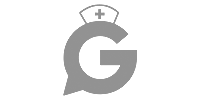Becoming a nurse means mastering a vast language of medical terms, clinical concepts, and specialized nursing vocabulary. Understanding these terms isn’t just beneficial—it’s essential for passing the NCLEX and thriving in your nursing career. In this guide, we’ll cover the foundational terms and critical concepts every nursing student must know, structured clearly for easy reference and effective study.
Core Nursing Vocabulary
Let's start with the basics. Here are the most critical nursing terms you’ll encounter frequently in your nursing education and on the NCLEX:
- Assessment: Collecting comprehensive data about patients to guide nursing actions.
- Diagnosis: Identifying patient health problems based on assessment data.
- Intervention: Actions taken by nurses to improve patient outcomes.
- Evaluation: Measuring the effectiveness of nursing interventions.
- Delegation: Assigning appropriate tasks to other healthcare personnel.
- Advocacy: Protecting patient rights and promoting patient well-being.
- Scope of Practice: Legal boundaries of professional nursing activities.
Looking for more essential terms? Check out our full list of
50 Must-Know Nursing Terms for the NCLEX (2025)
— packed with clear definitions, examples, and memory tricks.
Physiological Adaptation Vocabulary
These terms focus on physiological changes and patient management:
- Homeostasis: Maintaining internal stability in the body.
- Metabolism: Chemical processes in the body essential for life.
- Hemostasis: Process of blood clotting to prevent bleeding.
- Hypoxia: Lack of oxygen supply to body tissues.
- Edema: Swelling caused by fluid buildup.
- Ischemia: Reduced blood flow to tissues causing potential damage.
📘 25 NCLEX Study Tips That Actually Work
Struggling to stay focused or overwhelmed by where to begin? This guide gives you 25 proven NCLEX study strategies—including case studies, mnemonics, prep schedules, and more.
🚀 Read the Full GuidePharmacology Essentials
Pharmacological terms and concepts are critical for nursing exams and clinical practice:
- Pharmacokinetics: How drugs move through the body (absorption, distribution, metabolism, excretion).
- Pharmacodynamics: How drugs affect the body.
- Therapeutic Index: Margin of safety between effective and toxic doses.
- Adverse Effect: Unintended and harmful reaction to medication.
- Contraindication: Specific conditions where a drug should not be used.
- Antagonist: Drug that blocks a biological response.
- Agonist: Drug that activates certain receptors in the body.
Fluid & Electrolyte Balance
Master these concepts for managing patients' fluid and electrolyte levels effectively:
- Hypernatremia / Hyponatremia: High / low sodium levels.
- Hyperkalemia / Hypokalemia: High / low potassium levels.
- Hypercalcemia / Hypocalcemia: High / low calcium levels.
- Acid-Base Balance: Maintaining correct pH levels in the body fluids.
- Osmosis: Movement of water across cell membranes.
Psychosocial Integrity
Important vocabulary related to psychological health and patient support:
- Anxiety: Feelings of worry, nervousness, or unease.
- Delirium: Sudden confusion and rapid changes in brain function.
- Depression: Persistent feeling of sadness and loss of interest.
- Coping Mechanisms: Strategies used to manage stress or psychological distress.
- Therapeutic Communication: Effective verbal and non-verbal communication to support patient mental health.
Patient Positioning Terms
Correct positioning helps optimize patient outcomes and comfort:
- Supine: Patient lying flat on their back.
- Prone: Patient lying face-down.
- Fowler’s Position: Patient sitting upright, typically 45 to 60 degrees.
- Trendelenburg Position: Patient lying with feet elevated higher than head.
- Lateral Position: Patient lying on their side.
Safety & Infection Control
Preventing infection and ensuring patient safety are vital nursing responsibilities:
- Asepsis: Absence of bacteria, viruses, and microorganisms.
- Nosocomial Infection: Infection acquired in a healthcare setting.
- Isolation Precautions: Procedures to prevent the spread of infection.
- Sterile Technique: Procedures that eliminate all microorganisms.
- PPE (Personal Protective Equipment): Equipment worn to minimize exposure to hazards.
Mnemonics & Memory Tricks
Mnemonics make complex information manageable. Here are some popular ones:
- "MONA": Management of myocardial infarction (Morphine, Oxygen, Nitroglycerin, Aspirin).
- "RICE": Initial injury management (Rest, Ice, Compression, Elevation).
- "SOAP": Documentation (Subjective, Objective, Assessment, Plan).
Commonly Confused Terms Clarified
Avoid confusion with these pairs:
- Hypoxia vs. Hypoxemia: Hypoxia is reduced oxygen in tissues; hypoxemia is reduced oxygen in the blood.
- Hypertension vs. Hypotension: High blood pressure vs. low blood pressure.
- Hyperglycemia vs. Hypoglycemia: High blood sugar vs. low blood sugar.
Quick Tips for Mastering Nursing Vocabulary
- Create Flashcards: Actively recall terms daily.
- Teach Others: Explaining concepts helps cement knowledge.
- Practice Quizzes: Regular testing enhances retention and identifies gaps.
Additional Resources & Next Steps
To deepen your understanding of the nursing vocabulary and concepts covered in this guide, check out these focused resources:
-
50 Must-Know Nursing Terms for the NCLEX (2025)
Clear definitions, examples, and smart tips to remember the most tested terms. -
NCLEX Vocabulary Cheat Sheet: Prefixes, Roots, and Suffixes
Learn how to break down unfamiliar terms and boost your test-day confidence. -
Pharmacology Mnemonics: A Complete Guide
Master drug categories and tricky terms with proven memory tools and real examples. -
Fluid & Electrolyte Mnemonics & Easy Memorization Tricks
Quick memory aids for understanding sodium, potassium, calcium imbalances, and more. -
Nursing Mnemonics: 25 Easy Ways to Remember Complex Concepts (2025)
From MONA to MURDER, these memory tricks make complex nursing topics easier to retain and apply. - Top 20 NCLEX Vocabulary Words You Might Not Know NCLEX Vocab with NCLEX-style Questions and Explanations
Use this guide consistently, and you'll solidify your knowledge base, ensuring you're well-prepared for NCLEX success and a rewarding nursing career.







